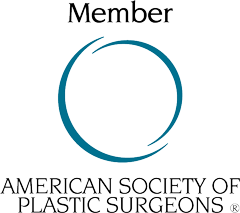(originally published Sept 16, 2011)
Unless you are a science major, understanding the topic of stem cells can be daunting. The mainstream media has provided some good articles on the topic of Stem Cells, but there is a lot of misleading information out there. In an effort to give you a mile high view of the stem cell world, we made a graphic, Stem cell types – debunking misconceptions.
The truth is that adult stem cell therapy is much closer to therapeutic commercial reality compared to embryonic or induced pluripotent stem cells. In fact, adult stem cells are on the launch pad now. We’re not diminishing the importance of embryonic or IPS research/clinical trials. ALL stem cell research is important and findings in one field have helped the other fields. We hope to see all three types of stem cells in mainstream medicine!
Mainstream media often lumps all stem cells into one category and quotes doctors saying things like: Stem cell therapies are many years away; (All) stem cells cause cancer; Stem cells are highly risky; Clinical trials are only in early stages; etc.
Those types of statements are simply not categorically true. In actuality, there’s a wide variation in stem cell risk profiles and clinical trial development. A big misconception is how far along adult stem cells are in their clinical trial development. In reality, the number of adult stem cell trials trounce the number of embryonic and IPS trials.
Types of stem cells
- Adult
- Embryonic
- Induced Pluripotent (IPS)
Ways to think about stem cell types
Autologous OR allogeneic
Autologous cells are your own stem cells. Allogeneic stem cells are donor cells from another human being.
Type of risk profile with humans
The more stem cells are manipulated, the greater the risk they pose to the patient receiving them. Adult stem cells have the lowest risk profile. Embryonic and induced pluripotent stem cells have higher risk profiles.
Furthermore, teratomas (tumors that originate from a group of normal cells) can form in embryonic and induced pluripotent stem cells. Teratomas do not form in adult stem cells.
The FDA regulates stem cells according to risk profiles and the potential to spread disease to the general population. For this reason, embryonic and pluripotent have more regulatory hurdles than adult stem cells. Likewise, autologous stem cell therapies have less regulatory burdens than allogeneic therapies.
Worldwide stem cell clinical trials
If you include all the trials that have been done over the decades with hematopoietic cells and bone marrow, the number of adult stem cell trials is in the thousands. Compare that number to just a handful of embryonic and induced pluripotent trials.
Big difference right? So, why is the media obsessed with talking about embryonic and IPS stem cells, when adult stem cell therapies are right at our doorstep?

(originally published September 11, 2011)



